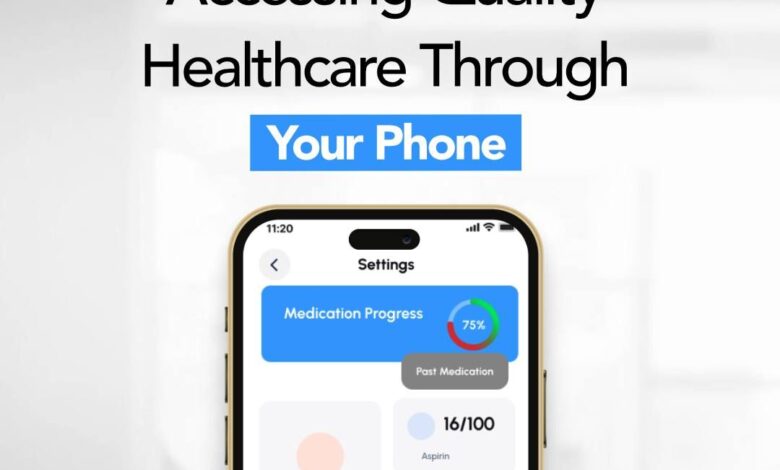10 Reasons Why You Should Know Your Medical History

Table of Contents
Know Your Medical History – In Nigeria as with many other African countries, there are high levels of superstitious beliefs and religious practices among the populace. Bordering on low health literacy levels, unsurprisingly many people are not well informed of the importance of knowing their medical history and do not pay enough attention to it.
Health conditions that could be prevented or better managed are consequently ignored, mismanaged or attributed to superstitious causes. This situation is worsened by a disjointed health system where patient health information is mostly held by health facilities in paper format that are hardly shared with other healthcare providers not to talk of making them accessible to patients themselves.
Yet a person’s medical history is very important. As an individual, it is to your great advantage to know your medical history and to be able to access your own essential health information when needed. Knowing your medical history and being able to access it empowers you to be more actively involved in your healthcare decisions and helps you track your health over time.
What is Your Medical History?
Your medical history is a combination of both your personal health history and your family health history. While your personal health history holds details about any health problems you have ever had, your family health has details about health problems your blood relatives like your parents, grandparents, great grandparents, siblings, nephews and nieces have had during their lifetimes.
Why You Need to Know Your Health History
1. An Important Risk Factor | 10 Reasons Why You Should Know Your Medical History
Your family history is regarded as a very important risk factor for a number of health problems such as cancer, diabetes, heart disease, stroke, hypertension, glaucoma and certain psychiatric disorders.
This means that if you have a blood relative who has had certain health conditions or even died from it, the chances are high that you too will develop the condition and may even die from it. The reason for this is because family members share a lot in common including genetic characteristics, lifestyles, environments and personal habits.
For instance many of the adverse health outcomes many people superstitiously attribute to ancestral curses, ill luck or the proverbial village people are nothing more than patterns of health conditions that run genetically in their family.
Your own health history is equally important. Even if there is no history of a particular health problem in your family, you could still be at risk and develop it. In essence, a family health history increases your risk but not having it in the family does not eliminate the risk. For instance your lifestyle, environment, health conditions you have had and other factors influence your chances of getting a disease.
2. Allergies and Medication Reactions | 10 Reasons Why You Should Know Your Medical History
You have probably heard or read in the news of cases of people who died as a result of their allergic reactions to taking certain drugs or eating certain foods. Knowing your health history helps identify allergies and adverse reactions to drugs, enabling healthcare providers to prescribe you safe and effective treatments.
3. Enhances Preventive Care | 10 Reasons Why You Should Know Your Medical History
Prevention is not only better than cure, it is ultimately cheaper. Being able to establish your medical history allows healthcare professionals to assess your risk factors for certain diseases and recommend appropriate preventive measures, such as screenings and vaccinations.
For example I undergo a yearly eye checkup primarily because I have a family history of glaucoma. I’m also cautious of the type of food I eat because there is a history of high blood pressure and diabetes in my family. Even though I do have these conditions, knowing I am at risk because of my family history is helping me to take appropriate preventive measures.
4. Aids Clinical Decision-Making | 10 Reasons Why You Should Know Your Medical History
For doctors and other healthcare providers to be able to treat you well, they need to diagnose you correctly. Your health history provides healthcare providers with essential information about your past illnesses, surgeries, and chronic conditions. This historical data is crucial for making accurate diagnoses and treatment decisions.
5. Vital for Chronic Disease Management | 10 Reasons Why You Should Know Your Medical History
If you have any chronic conditions like diabetes or hypertension, a detailed health history helps healthcare providers monitor the progression of the disease and adjust treatment plans accordingly.
6. Facilitates Telemedicine and Remote Monitoring | 10 Reasons Why You Should Know Your Medical History
More Nigerians are taking advantage of the availability of telemedicine services to access virtual consultations from their phones and computing devices.
When you want to receive telemedicine consultation, your medical history provides valuable context for healthcare providers who may not have physical access to your health records.
7. Aids Emergency Care
In emergency situations, immediate access to a your medical history can be life-saving. It provides critical information about allergies, medications, and underlying health conditions.
8. Supports Continuity of Care
It is not unusual for you to be attended to by different healthcare providers or specialists for instance by virtue of referrals or relocation from place to another.
A well-documented medical history ensures continuity of care when you see different healthcare providers. It makes it easier for your relevant health information to be shared among professionals.
9. Useful for Legal and Insurance Documentation
When you are signing up for a health insurance or life insurance an insurance company will seek to establish your health history. Aside insurance applications, your medical history may be required for other legal purposes. In all such cases, accurate documentation is essential.
Overall, a person’s medical history serves as a critical foundation for healthcare, enabling informed decisions, personalized care plans, and improved health outcomes. Keeping an accurate and up-to-date medical history is essential for maintaining one’s health and facilitating effective healthcare delivery.
10. A Digital Solution for Your Medical History
A number of health technology companies in Nigeria have been coming up with solutions to make patient health information accessible to them. One of such is MyMedicalBank, a health technology startup promoting digital access to quality and affordable healthcare for the populace. The company has recently developed MyMedicalBank PHR an app that allows users to securely store and access their health record and to share it with their doctor and other healthcare providers on demand.
Have you been affected by any of the issues raised in this article? Feel free to reach out to us or leave a comment below. We also invite you to share the article so that others can benefit.
MyMedicalBank is Nigeria’s #1 health digital platform for accessing personal health records and booking medical tests, home care, telemedicine, health insurance and other healthcare services from hospitals, clinics, medical laboratories, HMOs, care organizations and other verified providers. For enquiries, visit www.mymedicalbank.com/contact, email [email protected] or call +234 (0) 802 759 0165.



